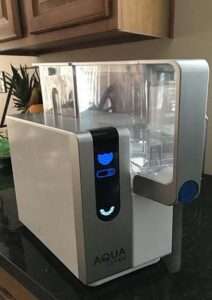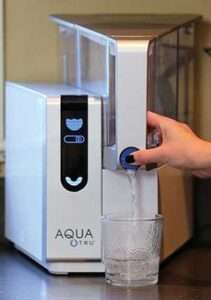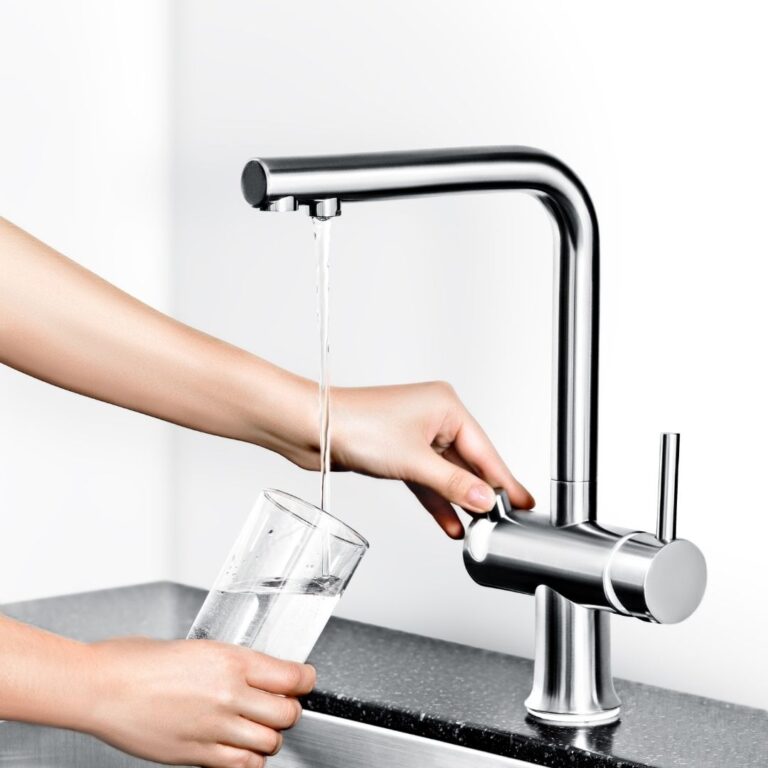Salt Water Flush Recipe: DANGERS and The Safest Recipe To Use
Salt Water Flush Recipe Dangers
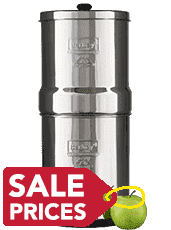
![]()
It can cause unwanted side effects like nausea, vomiting or general jitteriness in some people.
![]()
If you have severe digestion health problems or high blood pressure, you should talk to your doctor before doing this saline rinse.
![]()
If you are using a saltwater rinse as part of a juice fast or cleaning program, be sure to pay attention to your body’s reactions, continue to drink plenty of water, and stop if necessary.
Why Do The Sea Salt Water Flush?
Many people swear by the effectiveness of a salt water flush. It’s frequently employed to address issues like chronic constipation and offers additional health benefits. For instance, many people find it to be an incredible method to aid in detoxifying the body or to use it for cleansing the colon.
However, the primary motivation behind opting for a warm salt water flush is to use it as a natural laxative.
Around 20% of the US population experiences constipation at any given time. This isn’t surprising when you consider how most of us follow a diet lacking in fiber. The good news is that the laxative effect of a salt water cleanse helps promote bowel movements within 30 minutes to an hour after consumption.
This is precisely what makes the salt water rinse a well-liked “hack” for managing constipation, a common medical condition, without resorting to medication.
Drinking a mixture of salt and water triggers the body’s innate mechanisms for natural detoxification and waste elimination.
The most appealing aspect of this practice is its sheer simplicity. All you need is a mixture of warm water and a small amount of non-iodized salt. That’s it. You now have your very own “Master Cleanse” in a cup.
How Often Should You Do The Salt Water Flush?
You can perform several rinses in a row, but I wouldn’t do it every day. Space them throughout the week. Rinsing with salt water is safe and beneficial for the body, but engaging in this practice frequently can lead to electrolyte imbalances, resulting in dizziness, muscle fatigue, or fluctuations in blood pressure.
Adopting a cleansing routine every few weeks appears to be the most favored approach, as it helps re-establish body equilibrium and replenishes beneficial bacteria in the intestines.
Salt Water Flush Recipe
Total Time: 5 minutes
Serves: 1
Ingredients:
- 1 to 2 teaspoons of sea salt.
- 1 liter of hot filtered water.
- Glass jar with a lid.
Directions:
- Heat up your water, but do not bring it to a boil.
- Add 1 or 2 teaspoons of healthy natural sea salt to the jar and put the lid on.
- Shake it vigorously to fully dissolve the salt.
- Ensure no granules are visible.
- Drink the mixture quickly, preferably within a few minutes (aim for under 5 minutes).
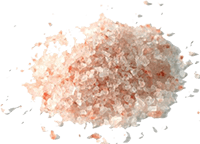
- Lie down on your side and massage your belly on one side, then repeat on the other side.
If you can manage to retain the solution for about 30 minutes, this will assist your body in fully absorbing the salt.
Shortly after finishing the mixture, you should begin to feel the urge to use the bathroom and you might need to go more than once.
Important Things To Know About The Salt Water Flush
The salt water flush is generally safe for most individuals.
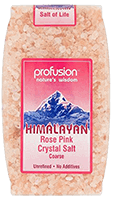 However, it’s important to know that excessive salt consumption can be bad for any diet. In the context of the flush, the quantity of salt used should be limited to 2 teaspoons (at most).
However, it’s important to know that excessive salt consumption can be bad for any diet. In the context of the flush, the quantity of salt used should be limited to 2 teaspoons (at most).
The benefits of sea salt over conventional basic table salt are plenty.
Sea salt is rich in healthy minerals and nutrients that have been removed from table salt. You can also use iodized sea salt or Celtic sea salt.
It’s true that individuals who find themselves in the ocean and consume salt water repeatedly can succumb to dehydration. But this is due to the fact that the bladder cannot efficiently expel the elevated levels of salt found in sea water.
But a small quantity of nutrient rich salt water won’t harm someone who is generally quite healthy and only does it on occasion. However, speak to a medical professional if you are in any doubt.
Salt Water Flush Not Working?
Have you attempted the salt water flush and found that it didn’t yield the desired results? Here are potential reasons that might have contributed (along with suggestions for creating a more effective solution for next time):
- Assess the amount of salt you’ve used. Using too much or too little salt could reduce its effectiveness or result in unwanted side effects.
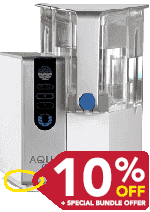
- Was your digestive system empty when you did it? Consider attempting the flush in the morning on an empty stomach if you didn’t do so initially.
- Use natural, healthy salt (i.e. avoid iodized table salt). Seek out the appropriate variety of salt for the best outcome. Not the white type of basic salt that is cheap and sold at the supermarket.
Taking these factors into consideration and making the necessary adjustments will improve the outcome of your next salt water flush experience.
Using Salt Water Flush For Constipation
When properly prepared, you will not see granules of sea salt in your solution. It will instead look like a cloudy mixture that is uniform in color and structure.
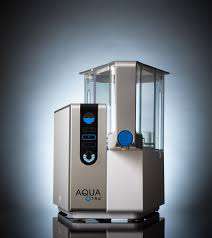 This is important because this solution is at its most effective when the sea salt is properly dissolved.
This is important because this solution is at its most effective when the sea salt is properly dissolved.
It is the salt being fully dissolved that helps the digestive organs process the mixture in the safest and most effective way.
When it comes to safety, salt water cleanses work as well as other types of “bowel cleansing products.” Even those prescribed by doctors for patients before a colonoscopy.
Studies examining the effect of salt water on cleaning the digestive tract have shown that oral sodium mixtures are very effective. In fact, they are sometimes even more effective than certain medical colon cleansing mixtures.
A study conducted by the Department of Colorectal Surgery of the Royal Melbourne Hospital in Australia showed that 91% of people who use salt water flush (similar to the one outlined in this article) reported that it worked and they would use it again.
Salt Water Flush Results
Salt water rinses can provide relief from bloating, digestive irritability, cramping and gas. This is particularly true if you detox and cleanse with salt water on a regular basis.
Salt Water Flush Weight Loss
The salt water flush can assist in weight loss.
The salty drink causes something called osmotic diarrhea because of the high salt content in the water, known as a ‘high solute load’.
Losing fluids and regular bowel movements can result in weight loss, but this shouldn’t be your main reason for doing this flush.
It is best used as a way to detox and cleanse the system.
Salt Water Flush After Eating?

It is advisable to do the cleanse on an empty stomach.
Many people feel sick if they drink the mixture after eating and it can create some side effects.
For instance, choking and vomiting are not uncommon.
However, drinking this salt flush certainly has fewer side effects than a chemical laxative and is completely natural.
Salt Water Flush At Night
You can perform the salt water flush at night or at any time (on an empty stomach). However, I believe the optimal timing is in the morning, as you are naturally fasted.
This can evolve into a delightful and soothing routine, serving as an excellent way to start the day.
Additionally, there’s a chance that you might either forget to do it or not have a sufficient amount of time to carry it out at night.
Salt Water Flush On A Full Stomach?
Yes, but it is better on an empty stomach, as you won’t have any food to digest, so it will simply flush out what is already in your system.
 Drinking a mixture of realnatural sea salt can help the body with its natural digestive processes and release unhealthy toxins from the body.
Drinking a mixture of realnatural sea salt can help the body with its natural digestive processes and release unhealthy toxins from the body.
It is also considered to be much safer than some of the commercial drugs for colon cleansing like diuretic teas or laxatives.
Disclaimer:
This salt water discharge is not associated with Master Cleanse and is not a quick solution to lose weight. Nor will it give you permanent weight loss.
This detox method is designed to cleanse and improve the environment of your digestive system.
Please consult your doctor if you are unsure about anything.
Scientific References
 Jequier E, Constant F. Water as an essential nutrient: the physiological basis of hydration. Eur J Clin Nutr. 2010;64:115–123
Jequier E, Constant F. Water as an essential nutrient: the physiological basis of hydration. Eur J Clin Nutr. 2010;64:115–123
Popkin BM, D’Anci KE, Rosenberg IH. Water, Hydration and Health. Nutrition reviews. 2010;68(8):439-458. doi:10.1111/j.1753-4887.2010.00304
Chan J, Knutsen SF, Blix GG, Lee JW, Fraser GE. Water, other fluids, and fatal coro-nary heart disease: the Adventist Health Study. Am J Epidemiol. 2002;155:827–833.
The dubious practice of detox. Harvard Women’s Health Watch. May, 2008


